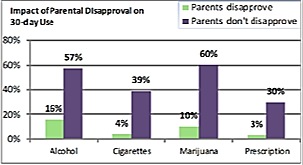- By Stacy Cangelosi
- Around Town
 Print
Print  It is April, and that means it is also Alcohol Awareness Month. This month was designated Alcohol Awareness month in 1987 by the National Council on Alcoholism and Drug Dependence (NCADD). This was done with the hope of helping reduce the stigma that people with substance abuse problems (and their loved ones) face and thereby making it easier to step forward and receive treatment. This year’s theme is 'Help for today. Hope for tomorrow', which speaks to why it’s important to address this issue on many levels.
It is April, and that means it is also Alcohol Awareness Month. This month was designated Alcohol Awareness month in 1987 by the National Council on Alcoholism and Drug Dependence (NCADD). This was done with the hope of helping reduce the stigma that people with substance abuse problems (and their loved ones) face and thereby making it easier to step forward and receive treatment. This year’s theme is 'Help for today. Hope for tomorrow', which speaks to why it’s important to address this issue on many levels.So why is this important to our area? The hope is for this message to reach members of the community, especially youth, before they get to the point of having an alcohol problem. Children who start drinking at a younger age are not only at risk for alcohol problems as they get older but are at a higher risk of having issues with other substances as well.
One simple but powerful way parents can reduce the chances of children drinking at a young age is to let them know you disapprove. The graph below shows data gathered in 2012 from students in grades 6-12 in Tompkins County. It is clear to see students who have parents disapproving of substance use, reported using these substances much less than their peers who reported that their parents don’t disapprove. The number of kids who reported using alcohol also reported their parent’s disapproval of their use was over 3 times less than their peers!

Other ways to help children steer clear of alcohol at a young age (where the impact on their growing minds and bodies is greater during this time) is to focus supervising and monitoring them, even as they get older. As students get older they will need greater independence, but parents should still set boundaries and expectations, by asking students where they are and who they are with, as well as setting curfews. Other data from the 2012 student survey showed students in Tompkins County reported lower usages when their parents supported them rewarded them when they did something good, and spent time with them having fun in various activities.
Unfortunately however, the reality is that some youth will still decide to drink and some of them will eventually develop a serious drinking problem. If that happens to someone you know, just remember this months’ theme of “Help for today. Hope for Tomorrow”.
Medical professionals do consider alcoholism a disease. In a 1992, the Joint Committee of the National Council on Alcoholism and Drug Dependence, Inc. (NCADD) and the American Society of Addiction Medicine (ASAM) published this definition for alcoholism:
"Alcoholism is a primary chronic disease with genetic, psychosocial and environmental factors influencing its development and manifestations. The disease is often progressive and fatal. It is characterized by impaired control over drinking, preoccupation with the drug alcohol, use of alcohol despite adverse consequences, and distortions in thinking, mostly denial. Each of these symptoms may be continuous or periodic."
But, this is where hope comes in. Like other diseases, alcoholism and drug dependence can be overcome with proper treatment, prevention and more research. Millions of people achieve recovery. By increasing access to care, the costly toll on society and the burden it places on families can be reduced.
Research shows conclusively that successful prevention and treatment leads to reductions in traffic fatalities, crime, unwanted pregnancy, child abuse, HIV, cancer and heart disease. Treatment reduces drug use, improves health, improves job performance, reduces involvement with the criminal justice system, reduces family dysfunction and improves quality of life. Treatment of addiction is as successful as treatment of other chronic diseases, such as diabetes, hypertension and asthma.
The youth in Tompkins County (as in all areas) are our future and we need to make the best choices to ensure that they all have the best future possible. It is also important for everyone to know that recovery from addiction is possible and help is available. Remember that where there is hope, there is help. If you or someone you know is dealing with an alcohol or substance problem, seek out help-call the Alcohol & Drug Council at 274-6288 or visit alcoholdrugcouncil.org.
v10i12



